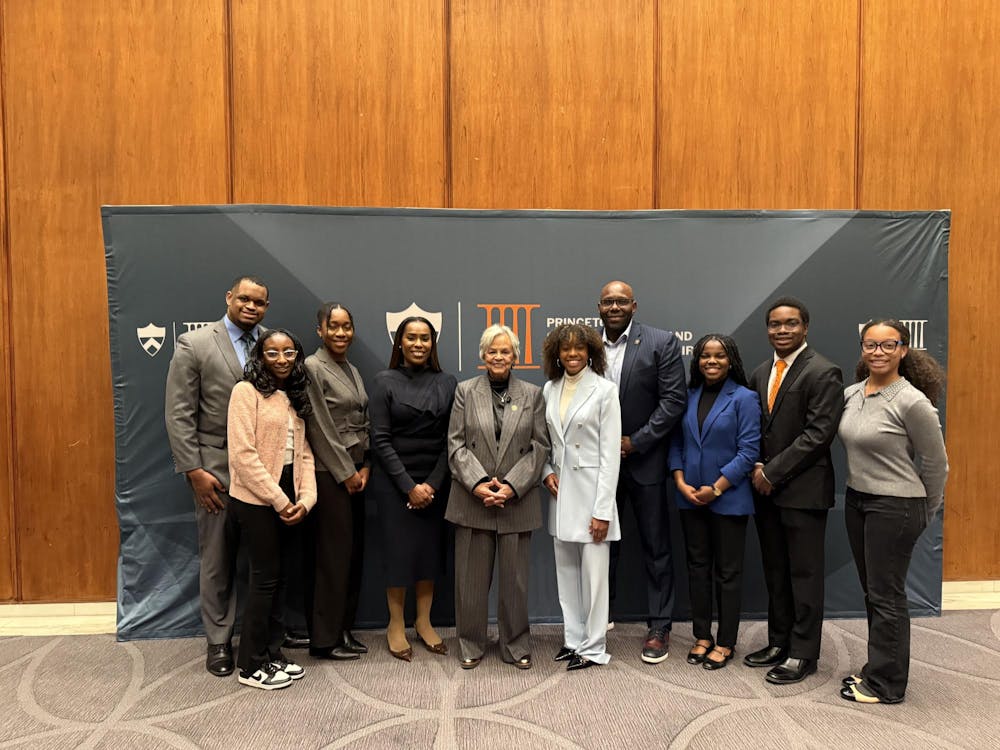The University’s Task Force on General Education held three discussions with students last week about concerns regarding distribution requirements.
Elizabeth Colagiuri, Deputy Dean of the College and member of the Task Force on General Education, saidthe discussions were centered on the goals of an undergraduate education at the University and what core values and lessons students should be equipped with by the time they graduate.
Colagiuri noted that the Task Force hopes to give a report on its findings to the University administration by next fall.
“At a high level, ideally, what should every Princeton student take away from their education? And then we started to turn to, more practically, what would that look like? How might we best do that?” Colagiuri said.
She noted that students who attended the conversations were very engaged and passionate about the topics at hand.
Undergraduate Student Government president Ella Cheng ’16 said that discussions focused on pass/D/fail policies, reforming the academic calendar, certificate programs, how classes are categorized by distribution area and intangible topics such as how courses may be too rigorous or too lacking. Issues regarding distribution and departmental requirements were only a small part of the talks, Cheng noted.
Cheng is a former staff writer for The Daily Princetonian.

She said the discussions were broad and that the Task Force said they would later create focus groups on more targeted areas of the curriculum.
Michael Cox ’17, USGCampus and Community Affairs committee chair, said that faculty members were receptive to student opinions during the discussions, adding that the discussions raised questions on what students should be getting out of classes in general.
“Is this the best environment we have for us to be able to do well?” he said. “Are [faculty] doing what they’re supposed to be doing for us right now, or is it part of just, like, a box-checking?”
He said the University has the resources to bestdecide which decisions and reforms to make, and added that the current academic climate is in need of change.

Cheng said she also believes that the University curriculum should be reformed.
“It should have happened probably a long time ago, but academic change here happens very slowly and deliberately, so I’m glad they’re doing this now. I just hope that they will consistently collect student feedback throughout the process,” she said, adding that she has been fighting for a student representative in the Task Force to advance faculty-student interaction throughout its work.
Cheng explained that moderators took notes on student opinions by asking what students believe would make an ideal Princeton education. They then discussed how the University can make these ideals possible, she said.
Colagiuri added that opinions and input from students will be integrated with the Task Force’s ongoing work, adding that it is important for the committee to hear from the students because they are the ones who experiencethe general education system and have opinions on how what works and what doesn’t.
“We’re not at the point now to say what the recommendations will be, because it’s still early days in the Task Force’s work,” she said.“I think it is clear we would like to have more conversations with students moving into the spring term,” she said.
She explained that the Task Force will continue to receive student and faculty input throughout the academic year and will study the University’s general education history and the distribution requirements at other universities.This way, the Task Force will gain a holistic sense of what an undergraduate education was like in the past, how it it is in the present state and how it should be modified for the future, she said.
Cheng said she believes that the curriculum needs to be pedagogically effective so that students are challenged, but not to the point where it threatens overall mental health and happiness on campus.She explained that students’ mental health and happiness on campus is strongly correlated with their academic performance because they all enter the University as diligent and motivated students.
“The truth is that not all of us can succeed in the same metrics like we did in high school,” she said. “All of us are coming from such different backgrounds but expected to perform equally well on the same base here, and I just find that kind of absurd.”







